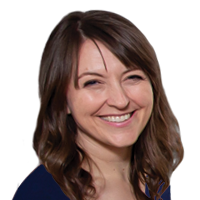Home » Keywords: » continuous improvement
Items Tagged with 'continuous improvement'
ARTICLES
Management
Strategy is not about doing the important things but rather the process of choosing and deciding the plan forward.
Read More
NDT
A Bright Future for Terahertz in Nondestructive Testing and Condition Monitoring
Currently, the most common application of THz is to monitor coatings and multilayer structures.
March 10, 2025
Face of Quality | Jim L. Smith
Data Integrity: Use quality tools and principles for greater data accuracy.
March 8, 2025
Q-Cast
PODCAST | What Do You Think Would Work? A Lean Approach to Leadership
March 6, 2025
Sponsored Content
Top 3 Root Cause Analysis Tools to Boost Customer Satisfaction
March 3, 2025
Quality Plant of the Year Winner
2025 Quality Plant of the Year: Spectrum Custom Packaging
Spectrum Stands Out
February 28, 2025
Management
Quality of Communication Enhances Productivity and Supports Success
By ensuring clarity and understanding, quality communication enhances productivity and supports the successful completion of tasks
February 20, 2025
Management
Improvement of Internal Communication and KPIs
Everyone senses when internal communication is not functioning as desired, but no one can pinpoint exactly what needs to be addressed first.
February 19, 2025
Management
TRIZ: The Backbone of Innovation and Problem-Solving
Unchain your brain by using techniques that are proven by empirical data.
February 18, 2025
EVENTS
Webinar
9/10/24 to 9/10/25
Contact: Meg K.
MES and Embedded Statistical Tools to Drive Quality and Productivity
Webinar Sponsored Webinars Live Streaming April 16, 2025 Sponsored
4/16/25 to 4/16/26
Contact: Meg K.
The Ecosystem Has Spoken – Silo Yourself at Your Own Risk
Stay in the know with Quality’s comprehensive coverage of
the manufacturing and metrology industries.
eNewsletter | Website | eMagazine
JOIN TODAY!Copyright ©2025. All Rights Reserved BNP Media.
Design, CMS, Hosting & Web Development :: ePublishing













